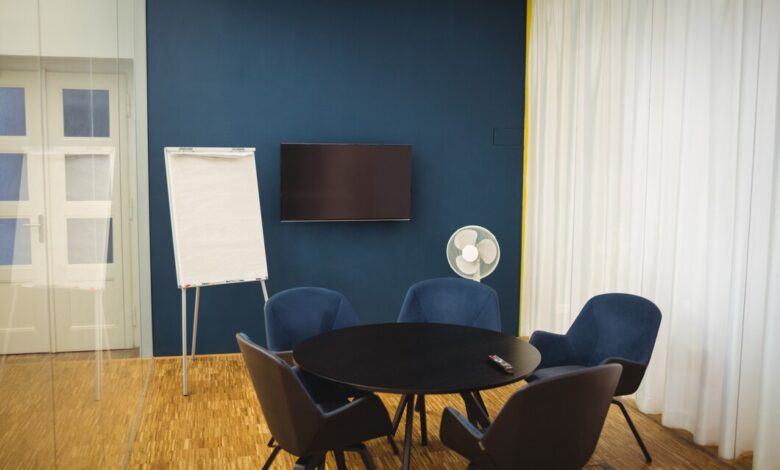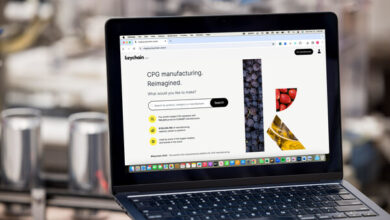How To Design A Conference Room For The Modern Office?

A sizable portion of the workforce has returned to work since the COVID-19 pandemic began. Even when they are held in Modern Conference Rooms with coffee and doughnuts, their comeback hasn’t necessarily resulted in a resurgence of interest in long meetings. The fact that a sizable 61% of employees say they attend more meetings now than they did prior to the pandemic outbreak only serves to compound the problem. This figure hurts because it illustrates a sensation that many workers have when they feel overworked due to meeting scheduling.
The discomfort with prolonged meetings seems to persist despite the allure of in-person collaboration and the perks of office amenities. It’s a reflection of the evolving work landscape, where priorities and preferences have shifted in response to the pandemic’s disruptions. Rather than a return to the old norms of office culture, many employees crave a balance that accommodates their newfound flexibility and autonomy.
Designing a Modern Conference Room
Since the onset of the pandemic in 2020, there has been a significant surge in workplace meetings, nearly a 70% increase.. This shift is highlighted by Microsoft’s observation of a 22% rise in 30-minute meetings among its employees. Regrettably, many companies face a challenge: a shortage of smaller meeting rooms tailored to accommodate only a few individuals. Here are some Modern Conference Room Designing ideas.
Acoustics
Effective acoustic design is contingent upon the primary function of the room it serves. In the context of a hybrid workplace where not all participants are physically present for meetings, it becomes essential for the IT department to equip the space with appropriate technological provisions. Cameras, speakers, and microphones strategically placed within the room ensure that remote attendees can seamlessly engage with the proceedings, facilitating clear audiovisual communication regardless of physical presence. For those looking to implement advanced acoustic and AV solutions, professionals like Lelch AV in Minnesota can assist in creating a workspace that prioritizes both functionality and aesthetics.
Effective acoustic design is contingent upon the primary function of the room it serves. In the context of a hybrid workplace where not all participants are physically present for meetings, it becomes essential for the IT department to equip the space with appropriate technological provisions. Cameras, speakers, and microphones strategically placed within the room ensure that remote attendees can seamlessly engage with the proceedings, facilitating clear audiovisual communication regardless of physical presence. Companies such as Lightman Technology can provide audio, video and security products for conference rooms ensuring your projectors, displays and other equipment are to high standard.
Flexible Furniture
Having large conference tables and spacious meeting rooms might give off a professional vibe, but they’re only practical if they’re utilized frequently. If these spaces remain empty most of the time, there’s no need to rush into renovation projects. Instead of resorting to drastic measures like tearing down walls, consider implementing a more flexible office layout and investing in modular furniture.
Prioritizing ergonomic furniture is essential to ensure the comfort and well-being of employees during extended meetings. Investing in chairs and tables designed to support proper posture can prevent discomfort and enhance productivity, sparing your team from the woes of backaches after prolonged brainstorming sessions.
Colourful Themes
Plain white walls and harsh lighting are not conducive to creating a welcoming atmosphere or stimulating creativity. One effective method is to carefully select art pieces and decor that can add energy and personality to the space. Additionally, choosing specific themes for meeting rooms can help differentiate them and make them more appealing.
Another approach to enhancing the appeal of a conference room is to adopt a theme and design the room accordingly. Involving employees in brainstorming session room names can foster excitement and ensure that the chosen names resonate with everyone. For instance, names like “Inspiration Island” or “The Dream Room” are far more inspiring than generic labels such as “Meeting Room 1” with its bland aesthetics.
Smart Conference Rooms
Employers must place a high priority on their remote workers’ involvement in the current remote work environment. Making sure that team meetings are participatory and fruitful even when members are dispersed geographically is a crucial component of this. Smart technology-equipped modern conference rooms provide an answer to this problem.
No matter where they are physically located, these rooms provide smooth communication and collaboration by utilising the most recent developments in video conferencing technology and collaborative tools. For instance, interactive whiteboards make it possible for attendees to see concepts and communicate crucial information in real time, creating a more stimulating setting for meetings.
Easy to Book
Ensuring that your modern conference rooms are utilized effectively relies heavily on accessibility and functionality. A prime example of this is demonstrated through OfficeRnD’s hybrid work software, which streamlines the process of locating and reserving meeting spaces for employees. Not only does it simplify room booking, but it also facilitates tracking hybrid employee attendance, enabling efficient scheduling for in-person meetings. By addressing these logistical challenges, such software enhances the overall productivity and collaboration within a hybrid work environment.
Read also: Unveiling the Majesty of Rupp Rafters: The Ultimate Emblem of Kentucky Basketball Heritage
Conclusion
Particularly in the post-pandemic period, designing a modern conference room for the modern office demands a careful approach that takes the changing needs and preferences of employees into account. Smart technological integration, adaptable furniture, vibrant themes, and good acoustics can all be prioritised to greatly improve these areas’ usability and aesthetic appeal.
Furthermore, facilitating the booking of meeting rooms and guaranteeing accessibility for remote workers are essential elements in fostering efficient cooperation and efficiency. Through innovation and adaptation to evolving workplace dynamics, businesses may design conference spaces that stimulate innovation, engagement, and productivity within their teams. You can also hire an Office Interior Designer for a better and productive modern conference room.



